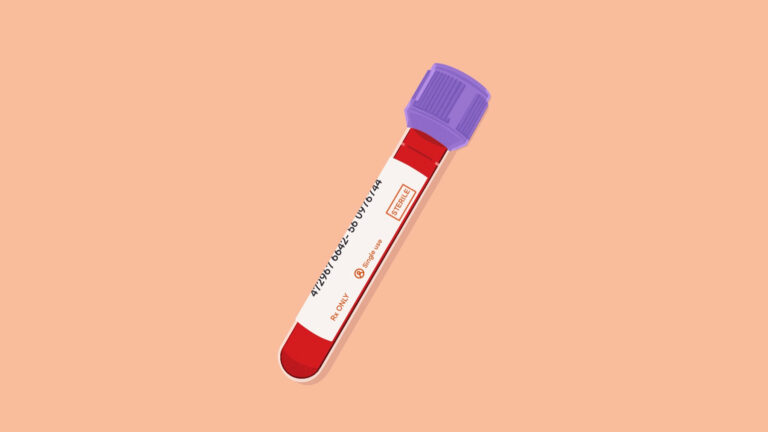At the end of 2020, we recapped a year unlike any other. Then, kicking off 2021, we identified key trends set to define fitness and wellness.
Now, closing out Q2 and looking ahead, we’re exploring the developments, challenges, and opportunities taking shape.
The New Normal
Before getting into the weeds, at a high level, a few truths have become clear across health, fitness, and wellness.
More than ever, the pandemic shined a spotlight on the importance of personal well-being. Priorities vary by individual, but concerns related to immune health, burnout, and mental wellness have taken center stage.
Among the more troubling issues, burnout is at an all-time high and our mental health continues to suffer. A positive, more attention is being paid to mental wellness. But, access to affordable care is still too hard to come by. Plus, the scale of COVID’s impact here has yet to be fully realized.
Across the board, from fitness and nutrition to healthcare, a few focus areas will dominate the conversation over the second half of this year: personalization, convenience, and outcomes or results. Consumers want to know, “Does it actually work, for me, on my terms?”
With this framing in mind, let’s get into the broader insights.
Gyms Rebound
Multiple reports indicate a return to gyms and studios. ClassPass said in-person experiences represent nine out of the 10 most popular bookings on its app. Mindbody expects consumer visits in October to outpace attendance from October 2019 by 2.6%. Meanwhile, spending on home fitness equipment has slowed. The next hurdle: How long until the industry recoups the $20B in losses it suffered last year?
More Funding
Gyms aside, investors continue to pour millions of dollars into home exercise companies. Already this year, a handful of connected fitness companies closed sizable funding rounds, including Tonal ($250M), Tempo ($220M), FightCamp ($90M), Ergatta ($30M), Liteboxer ($20M), and CLMBR ($13.5M). Top of mind, as the vaccine rollout continues, will the momentum slow as we put the pandemic behind us?
Cashing In
Entering 2021, there were three publicly traded fitness companies: Planet Fitness, Peloton, and Nautilus. Soon, that number could reach 10. Already listed, Beachbody merged with MYXfitness in a SPAC deal. Franchisors Xponential Fitness and F45 Training recently filed to go public. Exploring a listing, iFit Health & Fitness (formerly ICON) has hired bankers. In the mix, Hydrow, Tonal, and Equinox are testing the IPO waters.
Next Up
For the past year, connected fitness dominated the headlines. But, what comes after the Peloton of ‘X’? While smart equipment makers lean into exertainment, gaming and software are reshaping the industry. For its part, VR fitness is slowly gaining traction but hasn’t fully arrived. Next up, competition and community will become the focus of emerging Social+ Fitness companies. Look out for Mulu, Fyter, Pantheon, and Cabana Health.
Deal Making
In the 2021 Outlook, we noted recent deals—lululemon x MIRROR, CrossFit, MyFitnessPal—and the likelihood of more M&A. Sure enough, Xponential Fitness bought Rumble, Cure.fit scooped up Onyx and TREAD, and Peloton went on an acquisition spree. As we suggested, ClassPass did, in fact, garner acquisition interest, with reports of a potential deal with Mindbody. Competing for the fitness consumer, there are more deals to be made.
Powerful Partnerships
Distribution is everything. And, in an effort to stand out, unique partnerships are taking shape. Leveraging their star power, athletes, celebs, and musicians are teaming with fitness and wellness companies. Retail collabs, like Tonal x Nordstrom, Echelon x DICK’S, and FORME selling in Barry’s studios, will prove fruitful. And pro sports deals, like WHOOP x PGA and Hyperice landing nearly every major sports league, are having an impact.
Peak Burnout
We’ve reached peak burnout. Worse, increased rates of anxiety and depression are exacerbating the existing mental health crisis. Flush with capital and targeting employers, digital mental health startups are on pace to raise $3B in funding this year. Charting a new path, psychedelic drug makers are scaling up and going public.
Elsewhere, digital therapeutics, including prescription video games and virtual reality treatments are catching on. As kids and teens suffer, Brightline Health, Little Otter, Manatee, Daybreak Health, and others are prioritizing mental health solutions for younger generations.
Reset & Recharge
Related to burnout, we’ll try anything to escape and recover from the daily grind. Beyond meditation apps, breathwork, biofeedback, and sensory deprivation tanks are popular choices. Stress-reducing and focus-enhancing music is rising. The same can be said for mindful journaling and screen time tools like Wellnest and Opal.
Related: One-third of US adults don’t get enough sleep. Deep, Bioloop Sleep, Rise Science, and Eight Sleep are tackling this problem. Next up, expect to see more smart saunas and sensory experiences from the likes of Ancient Ritual, Florens, and OPUS.
Sensors & Smart Clothing
A long time coming, smart clothing is gaining traction. To date, the hype has outpaced progress, as companies like Athos and Wearable X forged ahead. Recently, upstarts like Cipher Skin, asensei, and UK-based Prevayl have raised capital to accelerate innovation. According to recent patents, lululemon is dabbling in the space, too. Meanwhile, Kinetyx and NURVV see an opportunity in sensor-enhanced footwear.
Whether or not smart clothing pans out, as the quantified athlete trend trickles down, everyday exercisers will find themselves engaging with more health- and performance-tracking sensors.
In the Works
Wrapping up, we’ll leave you with a few updates from our team.
ICYMI: Last week, we debuted Fitt Jobs, a curated, industry-specific platform featuring job openings at leading health, wellness, and fitness companies.
We’ve also been busy on the investment front, with a number of deals in the works and closing soon. We’re patiently waiting for the go-ahead to share more.
Under way, we’re laying the groundwork for a community component of Fitt Insider. Stay tuned!
As always, if you’re interested in connecting, email me: insider@fitt.co
💪 Enhancing Movement Health
A pillar of well-being, healthy movement has become the focus of workplace wellness, athletic performance, and everyday activity.
On the Fitt Insider podcast. movr founder and CEO Aaron de Jong joined us to talk about his company’s approach to improving mobility and strength through movement assessment and mini-workouts.
We cover: Aaron’s journey from fitness instructor and studio owner to startup founder; movr’s partnership with lululemon; why we invested in the company; and Aaron’s plan to bring movr’s technology to other fitness platforms.
Listen to the episode here.
🥤 Better-for-you Soda
Functional soda is on the rise, outpacing all other beverages with 465% growth last year.
- UK’s Ugly Drinks (sparkling water) grew DTC revenue by 500% YoY.
- Fizzy tonic Olipop reported a 900% sales uptick and “astronomically high” repurchase rates.
- Stevia-sweetened Zevia closed a $200M funding round in late 2020 and filed for IPO in June 2021.
What is it? As tasty as soda—minus the sugary consequences—functional pop’s unconventional ingredients deliver targeted health benefits, from digestion to immune support to cognitive health.
Meanwhile, Big Soda has come under fire for links to diabetes/obesity, battling shareholders over murky marketing practices. It’s not hard to see why health-conscious consumers are switching over to better-for-you alternatives.
Sweet. Indeed, soda sales have declined for the last 12 years in a row, and smaller players are eager to chip away at a $220B soft drink market.
In the past, it was about buying into a “lifestyle,” says food and branding expert Richard Horwell, but now “you’ll have to provide functionality and health benefits.”
Sour. It’s not all smooth sailing for functional soda upstarts, though. Zak Normandin, CEO of Iris Nova (parent company for DIRTY LEMON), thinks it’s a race to the bottom.
According to Normandin, “the beverage space is more crowded now than ever before,” even more so as Big Soda catches on:
- Coca-Cola recently launched non-soda extensions of its brand with zero-sugar options, like Energy and With Coffee. And in 2019, the beverage giant invested $20M in Health-Ade Kombucha.
- PepsiCo launched bubly bounce in early 2021, a caffeinated sparkling water without their usual sweeteners. But its latest functional drink, Soulboost, was accused of ripping off branding, flavors, and messaging of two separate beverage startups.
Takeaway: Competition is heating up in the beverage industry, mirroring disruption elsewhere in food, from snacks to candy.
Young upstarts are winning now, but it’ll be an uphill battle against legacy players learning to innovate. Regardless of who comes out on top, expect grocery shelves to look very different in the near future.
⌚️ Wrist Wars
Big tech is battling for your wrist.
- Industry veteran Apple Watch owned 1/3 of the global market in Q1.
- Amazon’s fitness wearable, the Halo Band, leverages machine learning technology that outperforms lab devices.
- Google acquired Fitbit for $2.1B in early 2021. To date, its smartwatch efforts have floundered due to gaps in hardware.
- Facebook will debut its first smartwatch in summer 2022, reportedly featuring detachable cameras and a heart rate monitor.
Why the boom? Smartwatches minimize phone distractions without compromising connection. As more users opt to put down their phones, the smartwatch market has flourished — and the rest of tech wants Apple’s pie.
In 2019, Apple Watches outsold the entire Swiss watch industry. And last year, the global smartwatch market grew 20% despite pandemic retail closures.
The bigger fish… is a piece of the $11.9T global healthcare market. Big Tech is racing to cash in on an industry ripe for disruption following COVID-19.
Wearables are a linchpin of their entry into health:
- Amazon is poised to offer valuable integrations for Halo, including its medical record software and online pharmacy PillPack, fueling rumors of Prime Health.
- Apple Watch leverages a suite of proactive/preventative health tools like high heart rate alerts and fall detection.
- Wearables Oura Ring and WHOOP have tipped users off to COVID-19 infections before symptoms fully manifested.
Privacy problems. Big Tech’s collection of sensitive health data rings alarms. Amazon’s Halo has raised eyebrows for monitoring users’ tone of voice, while Google faced investigations regarding consumer data usage following its acquisition of Fitbit.
And while Apple has positioned itself in the public eye as a “privacy protector,” Facebook’s history of data scandals may impede its move into the smartwatch/healthcare scene.
Meanwhile, other players are hoping to gain your trust:
- WHOOP claims it exists to “improve your life, not invade it.”
- Garmin’s GPS smartwatches hold up to security scrutiny by independent testers.
Next up. EVERING and Oura are jostling for your finger while Apple, Snap and Facebook make inroads into wearable eye tech.
Takeaway: Odds are in Apple’s favor in the wearables world, but it’s anyone’s game. Ultimately, the winner may be whoever can get hardware right, mitigate privacy concerns, and construct a comprehensive healthcare ecosystem first.
📰 News & Notes
- Eight Sleep debuts SleepOS.
- Best known for its bars, Clif enters cereal.
- The real reason Amazon bought Whole Foods.
- Indoor cycling startup Motosumo launches in the US.
- Roundup: Cool health and fitness jobs from our network.
- CycleBar rides into NYC, opening in old Flywheel locations.
- CrossFit names former Nike exec Jason Dunlop as president.
💰 Money Moves
- Sword Health, a virtual care platform for musculoskeletal conditions, raised $85M in Series C funding led by General Catalyst.
More from Fitt Insider: The Business of Movement Health - Connected strength startup Arena raised $5.2M in seed funding with contributions from Courtside Ventures, Powerhouse Capital, and Wellness Holding. Note: Fitt Insider also invested in this round.
- Berlin-based Urban Sports Club secured €80M ($94.5M) in funding led by ProSiebenSat.1 Group.
- Boxx, a boxing inspired fitness studio and digital platform, secured seed funding from Cornerstone Partners.
More from Fitt Insider: Cashing in on Boxing - Meati added $50M in Series B funding to scale production of its fungi-based steak.
More from Fitt Insider: The ’Shroom Boom - Danone’s venture capital arm, Danone Manifesto Ventures, acquired a majority stake in Harmless Harvest, a producer of organic coconut-based products.
- Active lifestyle brand RPM Training Co. closed a Series A round led by Partnership Capital Growth and KC/LLC.
- Frame, a mental wellness platform for clients and therapists, closed a $3M seed round.
- Cake, a sexual wellness company, raised $4M in seed funding led by Lerer Hippeau.
More from Fitt Insider: Erasing Stigmas - Batelle, a “sleep school” for kids, raised $4M in new funding
- Elite Sweets, a high-protein, keto-friendly donut maker, raised $2M in seed funding led by Siddhi Capital.
- RE:GEN, a stationary bike that generates clean energy, achieved its Indiegogo goal, raising $62,800.






